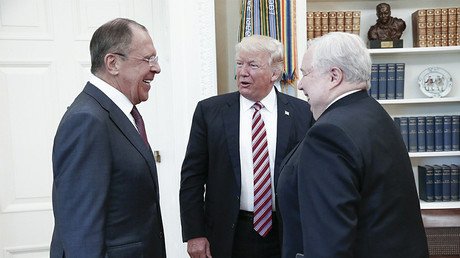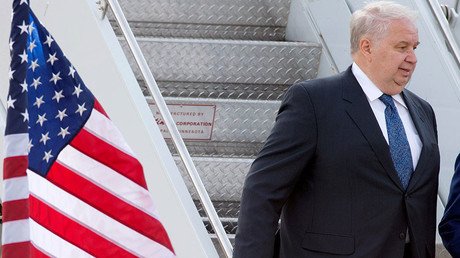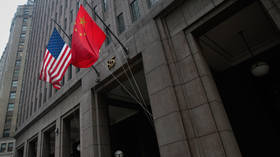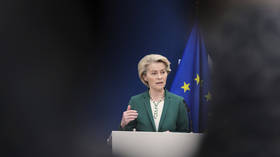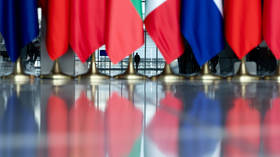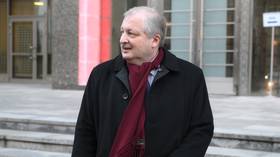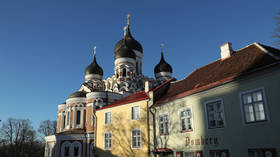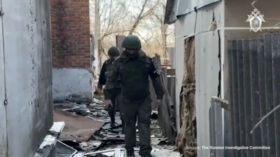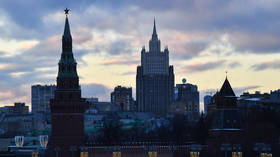‘Witch hunt’ target, Russian Ambassador Kislyak ends US tenure
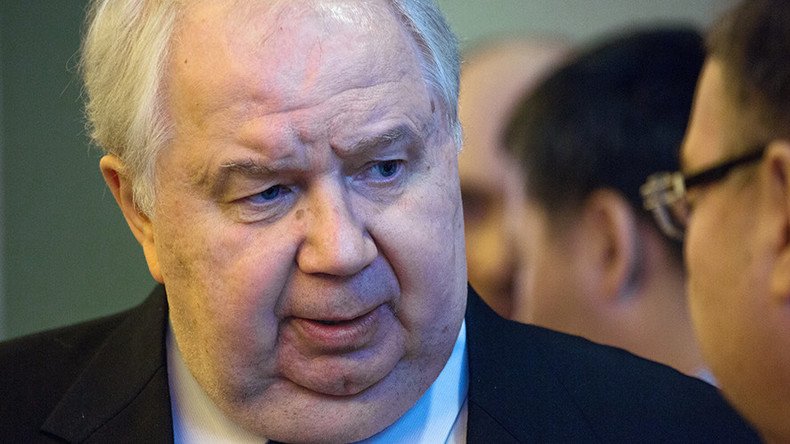
The man who made numerous headlines across the Western media, including for the resignation of US National Security Adviser Michael Flynn and the ongoing scandal with Attorney General Jeff Sessions, concludes his assignment in the US.
Sergey Kislyak, who has been in charge of securing Russia-US relations for almost a decade, will now return home, the Russian Embassy in the US confirmed on Saturday. His last year in service was apparently the hardest, amid the growing anti-Russia hysteria, while the mainstream media made him the subject of what Russian diplomats called a “witch hunt.”
Ambassador S.Kislyak has concluded his assignment in Washington, DC
— Russia in USA 🇷🇺 (@RusEmbUSA) 22 июля 2017 г.
Minister-Counselor D.Gonchar will act as Chargé d'Affaires ad interim🇷🇺 pic.twitter.com/180FfyQvXK
The recent media frenzy focuses on Kislyak’s contacts with US Attorney General Jeff Sessions, which the latter had not informed the Senate about in advance of his confirmation hearings, and that got him into hot water as a congresswoman demanded Sessions’ resignation for “lying under oath.” Those two brief meetings between the two officials were claimed to be further proof that Russia played a role in securing Donald Trump’s victory in the 2016 US presidential election.
Накануне возвращения Посла С.И.Кисляка в Россию в дипмиссии прошёл прощальный приём для коллег и друзей pic.twitter.com/7s7OlG1chz
— Пос-во России в США (@RussiaInUSA) July 21, 2017
Sessions himself denied any discussion of the campaign with Kislyak.
The scandal infuriated US President Donald Trump, who blasted the reports as “illegal leaks.” Moscow was also outraged with the allegations, pointing out that it is actually any ambassador’s mission to hold as many meetings as possible with the representatives of the executive and legislative branches of the host country.
“I can refer to a quote spread in the media today: all of this looks very much like a witch hunt or the days of McCarthyism, which we long thought have passed in the US, a civilized country,” Russian Foreign Minister Sergey Lavrov said.
Kislyak was accused of working for Russian intelligence, as he was once described in a CNN article as “a top spy and recruiter of spies.” Apart from Moscow’s outrage at the groundless accusations, some high-profile US ambassadors have strongly criticized the media hysteria targeting the ambassador.
“If he’s a spy then all ambassadors are spies,” former Ambassador to Russia John Beyrle told ABC in March. “He’s not a spy. To call him a spy is to misunderstand what a diplomat, even a Russian diplomat, does,” he stated.
Russian Foreign Ministry spokesperson Maria Zakharova also lambasted the spying allegations, advising CNN to stop spreading lies and fake news.
US President Donald Trump’s former national security adviser, Michael Flynn, stepped down in February after reportedly “misleading” Vice President Mike Pence about the content of his telephone conversations with the ambassador. Back then, media outlets speculated over the content and consequences of the phone call, claiming that the main topic of the conversation was the economic sanctions against Russia, though Flynn did not confirm this information.
READ MORE: Kremlin dismisses US media spying allegations against Russian ambassador
Less than a fortnight before the official end of Kislyaks’s tenure, American LGBT and women’s rights activist Amy Siskind posted a bizarre tweet advising Russian insurance companies not to insure Russia’s US ambassador. Maria Zakharova called the tweet an example of “the intensity of Russophobia that has overwhelmed the United States.”
“I do not even hope that Amy will ever learn about who Sergey Kislyak is and how much he personally has done to save Russian-American relations when the Obama administration announced its isolation crusade against Russia,” the spokeswoman said.
As the anti-Russia hysteria grew throughout the presidential campaign and beyond, Kislyak said the US was waging a “huge propaganda campaign against Russia,” while firmly denying any Russian interference in US domestic affairs.
The anti-Russia campaign marks “the worst point in our relations after the end of the Cold War. You’ve re-entered a policy of containing Russia,” he said in a speech at Stanford University in November 2016. “You’ve tried to contain Russia through economic pressure and through sanctions.”
Warmer relations are still possible, according to Kislyak, as in the modern era there are no “irreconcilable ideological differences” between Washington and Moscow.
This year marks Kislyak’s 40th year of diplomatic service. He assumed the post of ambassador to the US in 2008. Prior to that, Kislyak held the position of Second Secretary at the Permanent Mission of the USSR to the UN, was ambassador to Belgium, Russia’s Permanent Representative to NATO, as well as holding several positions within the foreign ministry.
The outgoing diplomat is reportedly to be replaced by Anatoly Antonov, presently Russia’s deputy foreign minister. Until then, the Russian mission in the US will be headed by Denis Gonchar, Russia’s deputy chief of mission.
